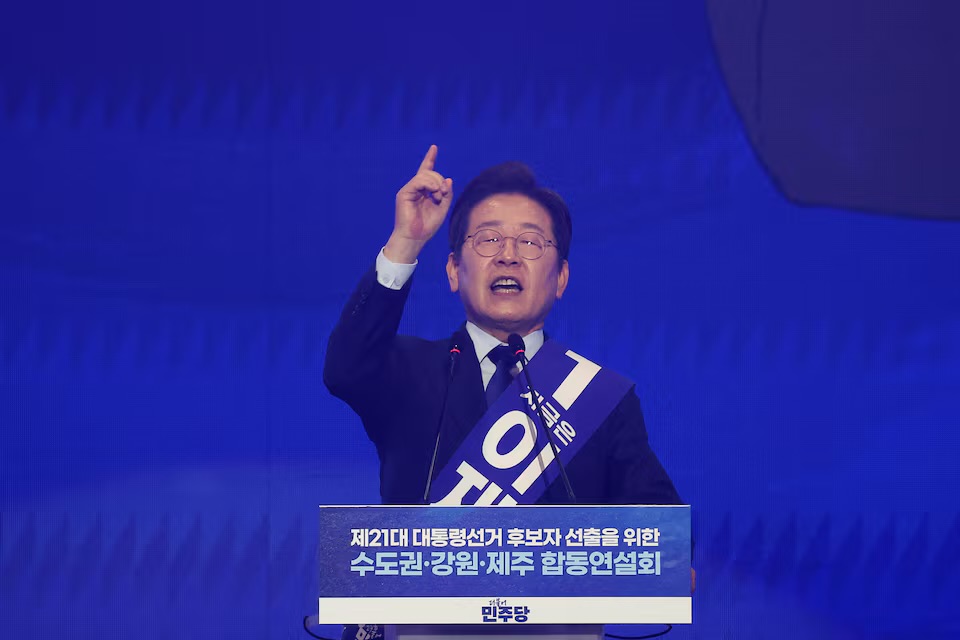South Korea’s presidential candidates, Lee Jae-myung and Kim Moon-soo, faced off in their first TV debate on Sunday evening, ahead of a snap election on June 3 to choose a successor to former President Yoon Suk Yeol.
The debate, the first of three TV debates scheduled over the next two weeks, focused on revitalizing the struggling economy, a key election issue.
Lee Jae-myung, the main opposition Democratic Party’s candidate and frontrunner, advocated for increased investment in artificial intelligence, protection for unionized workers, a 4.5-day working week, and prioritizing South Korea’s interests in responding to US tariffs.
He emphasized the need for careful preparation in trade negotiations with Washington, stating, “I think we should prepare well for this situation delicately and competently.” Lee also highlighted the importance of nurturing high-tech and renewable energy industries to overcome low economic growth and proposed developing sovereign AI to make tools like ChatGPT freely available to the public.
Kim Moon-soo, candidate for the conservative People Power Party, vowed to create jobs and deregulate to foster businesses. He pledged to establish a government agency dedicated to innovating regulations and invest over 5% of the national budget in research and development.
The economy has become a top election issue, with Asia’s fourth-largest economy contracting in the first quarter due to stalled exports and consumption amid fears over the impact of Washington’s aggressive tariffs and domestic political turmoil. South Korea has begun trade talks with the US and is seeking a waiver from the 25 per cent tariffs imposed by US President Donald Trump in April.
According to the latest Gallup Korea poll, Lee holds a lead with 51 cent support, while Kim trails at 29 per cent. The snap election was triggered by former President Yoon’s impeachment over his short-lived imposition of martial law on December 3, which sparked political turmoil.
Read also: South Korea sees Trump starting tariff talks with Seoul, others



